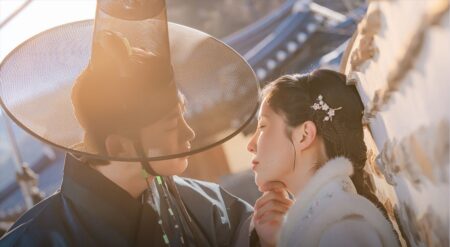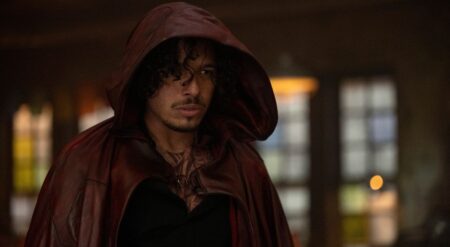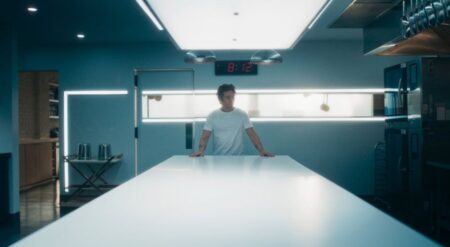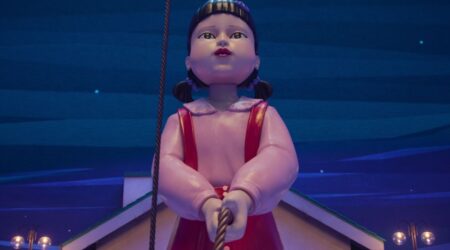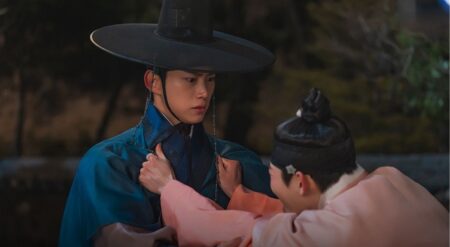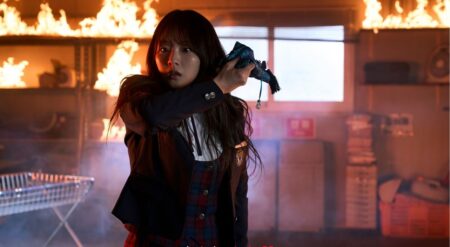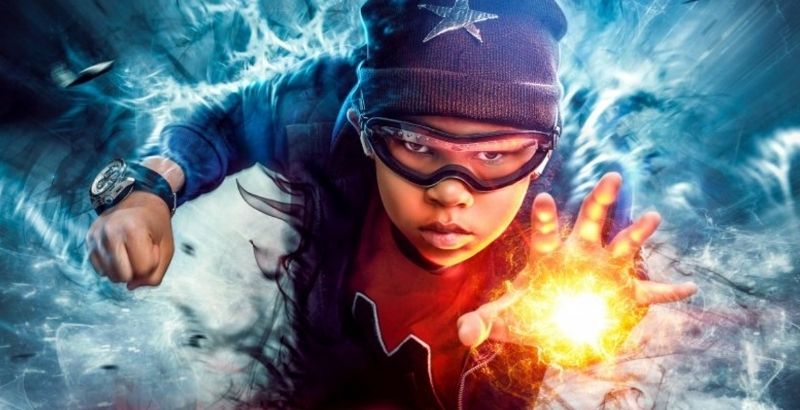
Raising Dion Season 2 takes things up a notch in terms of its story and character development, especially in the enemy that Dion Warren (Ja’Shia Young) finds himself facing. Based on the comic series of the same name by Dennis Liu, the Netflix Original Series picks up two years after the events of the first season. Dion, now 10, attempts to continue his superhero activities much to the chagrin of his mother Nicole (Alisha Wainwright) who’s trying to keep a low profile. Trouble rears its head with the appearance of a new kid at school, Brayden (Griffin Robert Faulkner). Not only does Brayden have powers like Dion, but he’s also been possessed by the malevolent superhuman known as “The Crooked Man” — who wants revenge against Dion.
In the vein of other superheroes, Raising Dion Season 2 presents Brayden as a foil to Dion. Though both of them lost their fathers to the Crooked Man, Brayden grows bitter and angry that Dion has a family and he doesn’t. And while Dion takes his superhero duties seriously by following his mother’s rules on when and when not to use his superpowers, Brayden uses his telepathic abilities to invade others’ minds and constantly pushes Dion to break his. One of my favorite writers J. Michael Straczynski came up with what I refer to as the Principle of Power: if you were a good person before gaining superpowers in a story, you’d be…well a superhero. However, if you weren’t…you’d be a supervillain. This theory seems to hold water as both Dion’s godfather Pat (Jason Ritter, making his return) and Brayden turned out to be horrible people. And as if that wasn’t bad enough, Brayden idolizes characters like Darth Vader and Kylo Ren.
In Nicole’s case, she continues to juggle her work and keep track of Dion — which is only complicated when sparks fly between her and Tevin (Rome Flynn), another superpowered being who starts training Dion how to use his powers. There’s an interesting angle brought up as Pat’s actions in Season 1 left Nicole wary of superpowered men, but it’s glossed over in the space of two episodes. Granted, I’m happy Wainwright and Flynn have actual chemistry, but that uneasy dynamic could have been a great subplot. Other subplots where Nicole helps another superpowered teenager, Janelle (Aubriana Davis), come to terms with her matter manipulation powers and a power struggle at the BIONA Initiative where Nicole works and Dion trains are thankfully handled with more care.
But perhaps the subplot that stood out the most is how the Crooked Man’s influence leads to the rise of a virus that transforms its victims into massive plant monsters — think Swamp Thing, only there’s more than one and they’re all evil. I’ve been wary of stories that attempt to tackle the COVID-19 pandemic, whether it’s through metaphor or attempting to incorporate the pandemic into its story; let’s just say I wouldn’t wish Songbird on my worst enemy. Raising Dion not only avoids the pitfalls of these other stories by actually being subtle but exploring the toll the pandemic has taken on people both mental and physical-especially when one of the main characters falls under the virus’ influence.
The one thing that surprised me is that Michael B. Jordan, who starred as Dion’s father and Nicole’s husband Mark, doesn’t appear in any Season 2 episodes. Jordan still remains on the series as a producer, but his presence was a huge draw of the first season-maybe this will change in Season 3. And I have to point out how wonky the series’ special effects can get; whenever Dion uses his powers, there are blockbuster-level effects. The Crooked Man, on the other hand, looks like a refugee from an episode of Xena: Warrior Princess — not a good sign for a character who’s supposed to be the ultimate evil.
Raising Dion Season 2 is now available to stream on Netflix.
Raising Dion Season 2
-
Rating - 8/108/10
TL;DR
Raising Dion Season 2, much like its protagonist, goes through some growing pains as it settles into its sophomore season — but comes out the stronger for it. Should the series be renewed for a third season, I think it’s at the point where it can resemble a more traditional superhero story — especially if the post-credits scene in the final episode is any indication.

